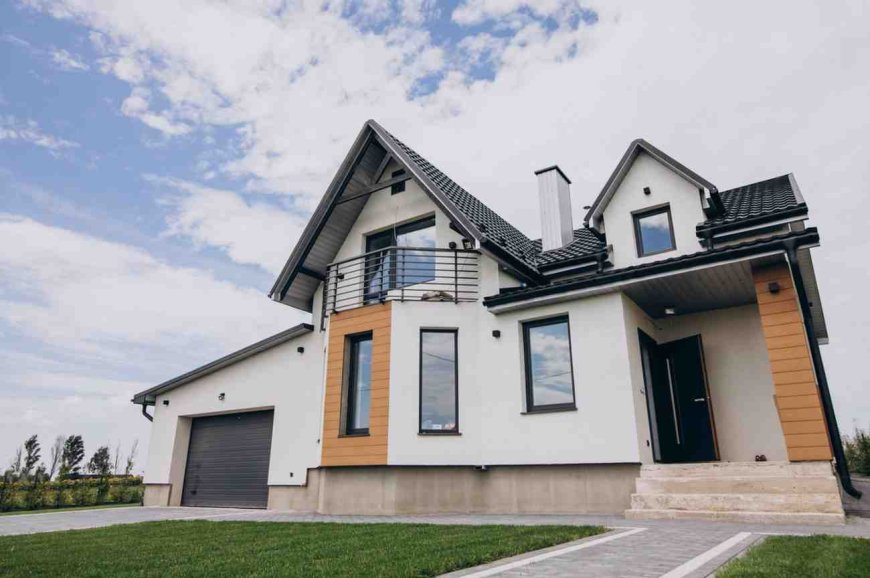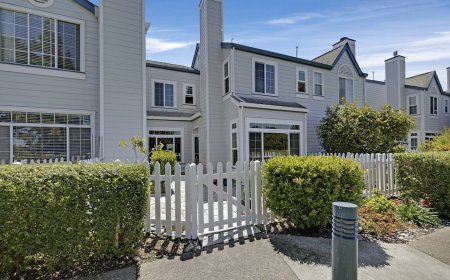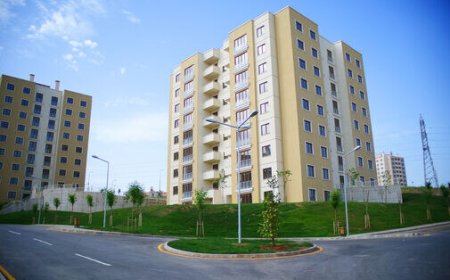How to Evaluate the Resale Value of a Residential Property
Learn the essential factors to evaluate the resale value of a residential property. This guide helps you make smart, informed decisions before buying or selling a home.

When investing in a residential property, one of the most important considerations is its resale value. Whether youre planning to live in the home or rent it out, understanding how much it could be worth in the future can guide your financial decisions and protect your investment.
In this blog post, we will walk you through the key factors to consider when evaluating the resale value of a residential property. Each aspect covered here is practical and can be used by both first-time buyers and seasoned investors.
1. Location Matters the Most
The location of a property is arguably the most significant factor in determining its resale value. Properties in desirable neighborhoods with access to good schools, public transportation, retail areas, parks, and other amenities tend to hold or increase their value better over time.
Even within the same city, values can differ widely depending on how well-connected or developed the area is. Buyers often look for convenience and lifestyle benefits, and location plays a major role in both.
2. Quality of Construction and Age of the Property
The quality of construction has a direct effect on both the durability and visual appeal of a property. A well-built home will last longer and require fewer repairs, making it more attractive to future buyers.
Additionally, the age of the property influences its resale value. Older homes may require significant maintenance or upgrades. However, if the property has historical or architectural significance and is well-maintained, it could still attract premium buyers.
3. Property Layout and Usable Space
A functional and practical floor plan is a huge plus in resale value. Homes that offer open layouts, plenty of natural light, and well-placed rooms are more likely to attract future buyers.
Square footage is also important, but its not just about the size. The usable spacesuch as the number of bedrooms and bathrooms, storage, balconies, and even parkingcan all contribute to the final resale price.
4. Future Development in the Area
Upcoming infrastructure projects or development plans near the property can increase its value over time. New roads, commercial centers, schools, or public transit stations often make the area more attractive to buyers.
However, its equally important to consider if any nearby development could negatively affect the propertysuch as new highways increasing noise or industrial zones being built nearby. Keep an eye on both the pros and cons of future development.
5. Market Trends and Timing
Real estate markets go through cycles. The resale value of your home can be influenced by broader economic conditions, interest rates, and market demand at the time of sale.
Study market trends to understand whether youre in a buyers or a sellers market. During a sellers market, property prices tend to rise due to high demand and low supply. Knowing when to sell can make a significant difference in your return on investment.
6. Curb Appeal and First Impressions
A well-maintained exterior gives potential buyers a positive first impression. Curb appeal includes everything from a clean driveway and freshly painted walls to a tidy garden or entrance.
Small aesthetic upgrades such as new fixtures, landscaping, or even just cleaning and decluttering the space can have a surprisingly large impact on resale value. Buyers often make judgments within the first few seconds of seeing a property.
7. Legal Clearances and Documentation
Legal issues can seriously hurt a propertys resale value. Ensure that the property has clear title deeds, all necessary municipal approvals, and that taxes are up to date. These factors can reassure potential buyers and make the transaction smoother.
A legally sound property not only retains its value but is also likely to sell faster. Buyers are wary of complications and delays, and they tend to pay more for properties that come with clean documentation.
8. Maintenance and Renovation History
A property that has been regularly maintained will usually have a higher resale value. Keeping a record of repairs, renovations, or upgrades made over time can serve as proof that the property has been cared for.
Modern appliances, updated plumbing or electrical systems, and energy-efficient upgrades can also be major selling points. Buyers often prefer a move-in-ready home and may pay extra for updated features.
9. Rental Income Potential
Even if you're not renting out the property yourself, its potential for rental income can positively influence resale value. Buyers who are looking at property from an investment perspective will consider how much rent the property can command in the local market.
High rental demand in the area indicates a strong resale market as well, as more buyers may be interested in both living in and investing in such a location.
10. Neighborhood Trends and Demographics
Finally, understanding the overall demographic trends in the neighborhood is essential. A growing population, younger families moving in, or new businesses opening nearby are all signs of an area on the rise.
Conversely, a neighborhood with a shrinking population or deteriorating infrastructure may struggle to maintain property values over time. Research the direction in which the neighborhood is moving, not just where it currently stands.
Final Thoughts
Evaluating the resale value of a residential property involves more than just guessing based on the current price. It requires a detailed look at the location, structure, layout, and even long-term trends that may affect property demand in the future.
When you carefully analyze these factors, you put yourself in a stronger position to make informed decisionswhether you're buying a home for your family or investing in property for future profit. Always think ahead and consider not just what the property is worth today, but what it could be worth tomorrow.
Important Links
Dunearn Road Condo Pricing: What You Need to Know Before Investing
Discover the Charm of Dunearn Road New Condo: A Prime Address in the Heart of Singapore
Dunearn Road Condo New Launch: A Game-Changer in Prime District 11
Discover Dunearn Road Condo: Your Perfect Singapore Retreat
Discover the Stunning Dunearn Road Condo Showflat: A Preview of Luxurious Living
Dunearn Road Condo Project Details





































